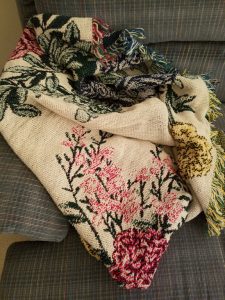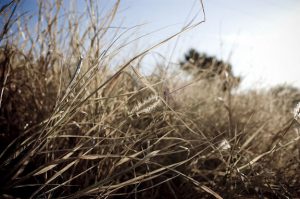Yesterday morning, I was sitting at my desk with a cup of coffee when, somewhere far away in a dimly lit corner of my mind, I heard a familiar voice lamenting her woes. She was immediately recognizable as the unhappy past self that I had nicknamed Drama-Queenie a few years ago, before I decided to be nicer to her in an imaginary conversation on this blog.
“I am always in pain. I am always in pain,” she wailed. “I’m so very tired. Everything is so hard. I am always in pain!”
Where her outburst might have come from wasn’t as obvious as her identity. As far as I knew, I’d gotten things reasonably well sorted with Queenie (as I had renamed her, somewhat more kindly) when I told her that she was free to begin a new life in the make-believe village of Channelwood in the 1890s.
Evidently, things hadn’t gone as planned. Although Queenie had said she was happy in the village with her new friends, now she was back inside my head again, sounding worse than ever. She reminded me of a zombie with her mindless wailing, or a sleepwalker in the throes of a very bad nightmare.
Hmmm…
After giving more thought to the nightmare scenario, I pictured myself appearing in Queenie’s tiny house in Channelwood very late at night. Yes, there she was, definitely asleep in a long, old-fashioned nightgown. I couldn’t see much because the curtains were drawn and she had blown out the candle on the nightstand before going to sleep, but there was enough moonlight seeping in through the curtains to show a heap of covers on the floor. She had thrown them completely off with all her thrashing.
“Wake up, Queenie, honey,” I said. “You’re having a nightmare. It’s not real. You’re safe here now, remember?”
Her eyes snapped open, and she recoiled toward the wall as if expecting to be attacked at any moment. “I wasn’t ever safe anywhere. They called me nasty names, and acted like they hated me, and laughed at me whenever I made even the smallest mistake, and, and…”
Queenie burst into sobs and covered her face with her hands. Not wanting to say the wrong thing, I quietly picked up the covers from the floor and put them back on the bed.
“And don’t try to tell me it wasn’t really that bad,” she shouted, letting her hands fall to her sides and clenching them into fists. “Because it was bad, it was, and nobody has any right to say it wasn’t really!”
Taking a step toward the window, which had no glass, I pulled back the curtains. Moonlight streamed into the room. The night breeze was filled with the peaceful scents of pine trees and the nearby ocean.
(Image by Millie Walker)
“I didn’t say that it wasn’t really bad,” I clarified, after taking a deep breath of the lovely fresh air. “What I said was that it’s not real in the here and now. Maybe we can’t undo things that happened in the past, but we do have choices going forward. Listen to the waves breaking over the rocks, Queenie, and to the wind moving through the trees. Life is calling to you.”
Queenie paced back and forth several times, her bare feet padding relentlessly over the thick rug. Finally she stopped at the far end of the room and looked back at me.
“I’ve tried, you know,” she said. “Ever since I came here to Channelwood. Telling myself it was a safe place, everything was all right, I didn’t have to worry, and all that bad stuff was in the past and very far away. But it wasn’t—it wasn’t gone at all. No matter what I do, or how I try, nothing ever goes away. It’s not fair to say I haven’t done enough.”
“The mind has its own cadence, its own natural flow—rather like the wind and the waves,” I told her, as a gust set the curtains fluttering. “Often we can’t control what shows up in our thoughts. In fact, the reason I’m here right now having this conversation with you is because when you get upset, that disturbs my thoughts, and I can’t just switch you off. So, it would be ridiculous for me to say that you haven’t done enough, wouldn’t it?”
“Okay, I guess that’s fair,” Queenie said, giving me a tentative smile. “I’ll try harder not to mess up your thoughts, but I can’t make any promises.”
“No worries.” I smiled back. “If you have any more trouble sleeping, just let me know, and I’ll bring you a nice hot cup of cocoa.”










